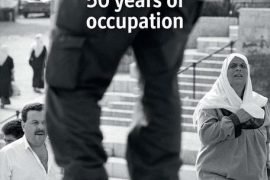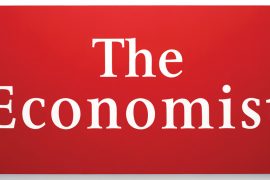What are the obligations of citizens in a democracy?
For many, so accustomed to the media’s ‘rights-based’ discourse, the question would likely not even register.
However any social contract within the parameters of democratic self-government surely includes a few basic responsibilities that all are expected to share – such as national loyalty, restraint and respect for the law and the common good. These basic requirements, it seems, would certainly apply to the country’s minorities, as well as the majority.
Yet, when surveying the media’s coverage of Israel, we’re often struck by the myopic focus on the putative abrogation of the rights of its Arab minority by the Jewish majority, without the slightest suggestion that obligations exist on the part of the former as well as the latter.
An Economist article on proposed Knesset legislation, in response to Arab lawmakers’ visit to the families of Palestinian terrorists who killed Israelis, views the row through the predictable lens of the alleged ‘erosion of Israeli democracy’. It also contorts almost every detail to fit this narrative, beginning with the headline: ‘Israel’s proposed new law hits out at Arab Parliamentarians’. (Though, interestingly, the headline of the article was changed (without explanation) at some point to ‘An Arab Agenda’)
The proposed law would allow MKs to suspend other members (with a 90 MK majority) if they engage in incitement to violence or racism; support armed conflict against Israel; or negate Israel as a Jewish and democratic state.
This law would of course apply to all lawmakers, not just those from Arab parties.
In the second paragraph, the Economist explains:
The members of Balad, an Arab-nationalist party, also took part in a moment’s silence in memory of the young Palestinians. By calling them “martyrs”, the MPs enraged many Jews who regards the would-be killers as terrorists;
Of course, it’s not only “many Jews” who regard the killers as terrorists, but the overwhelming majority of all Israelis, including Arabs.
The Economist:
While the meeting was undoubtedly provocative, the move by the prime minister, Binyamin Netanyahu, to adopt powers to banish the Arab MPs from parliament is seen by his critics as an assault on Israel’s democracy and an attempt to disenfranchise Israel’s Arab minority, who make up 20% of the population (excluding Palestinians in the territories occupied in 1967).
First, Arabs would not be “disenfranchised” under the proposed legislation. If an Arab MK was removed, the next person on the Arab party list would then be sworn in as MK.
Note also how the decision of Arab Israeli lawmakers to honor Palestinian terrorists is characterizes as merely “provocative”, while the proposed legislation is seen as “an assault on Israel’s democracy” and Israel’s Arabs. (This claim ignores polling suggesting that Israel’s Arabs overwhelmingly support MKs who condemn terror attacks against Jews.)
The Economist then acknowledges that the bill will likely never become law, or that, if it does, it will likely never be used.
However, it again pivots to background information which supports their desired narrative.
Yet it is part of a verbal campaign Mr Netanyahu has waged against Israel’s Arab minority since last year’s general election. In a message broadcast on election day, Mr Netanyahu warned right-wing voters that “Arab voters are flowing in droves to the polls”.
He later expressed regret over that message but recently he linked an attack in Tel Aviv, in which an Israeli Arab murdered three Israelis, to “lawlessness” in Arab towns. He also instructed two conservative ministers to draw up a list of tough conditions that Arab local councils must adhere to in order to get money from a $3.8 billion programme designed to improve conditions in the Arab sector.
Note how the Economist weaves in three unrelated events to support their broader claim of racism: the prime minister’s widely criticized comments about Arabs coming out in droves, his claim that there is lawlessness in many Arab towns (debatable but not racist), and alleged requirements for Arab towns to receive a very large sum of money.
The latter point is especially telling, as it manages to turn even evidence that Arab social and economic problems are being substantively addressed by the state into not only a negative, but evidence of an assault on the Arab sector.
To be clear, there are real disparities between Jews and Arabs in Israel, and it is reasonable for journalists to explore their cause and possible remedies. However, Israeli Arabs should not be infantlized. Any comprehensive, fair and sober analysis of Jewish-Arab relations can not focus entirely on the responsibilities of the former.
When New York Times public editor Margaret Sullivan, commenting on the paper’s coverage of the region, suggested that Palestinians need to be portrayed as more than merely victims, she was acknowledging a broader truth: that minorities – even those viewed to be marginalized or oppressed – should be taken seriously as “agents of their own fate”.
We can only hope that Economist’s coverage of the Israeli-Palestinian conflict will eventually be informed by Sullivan’s progressive ideal.





